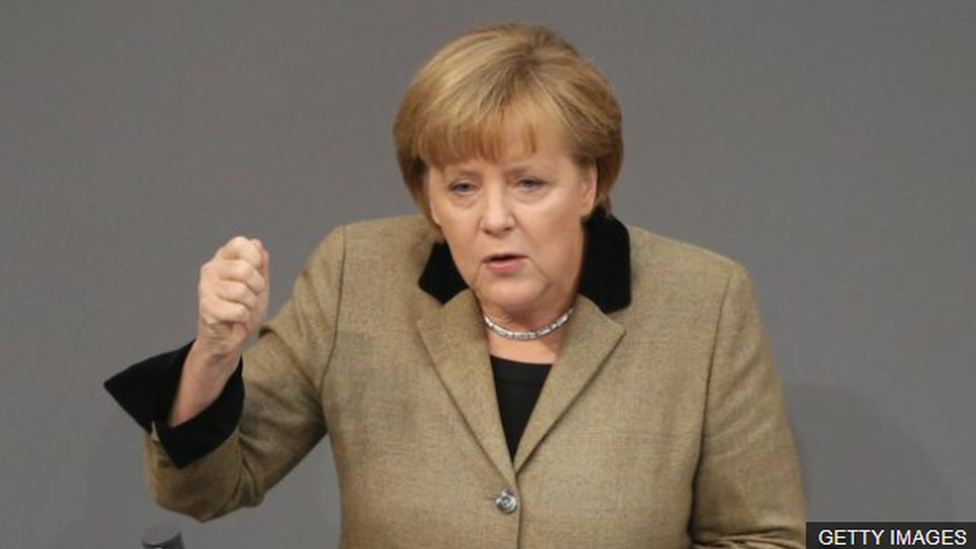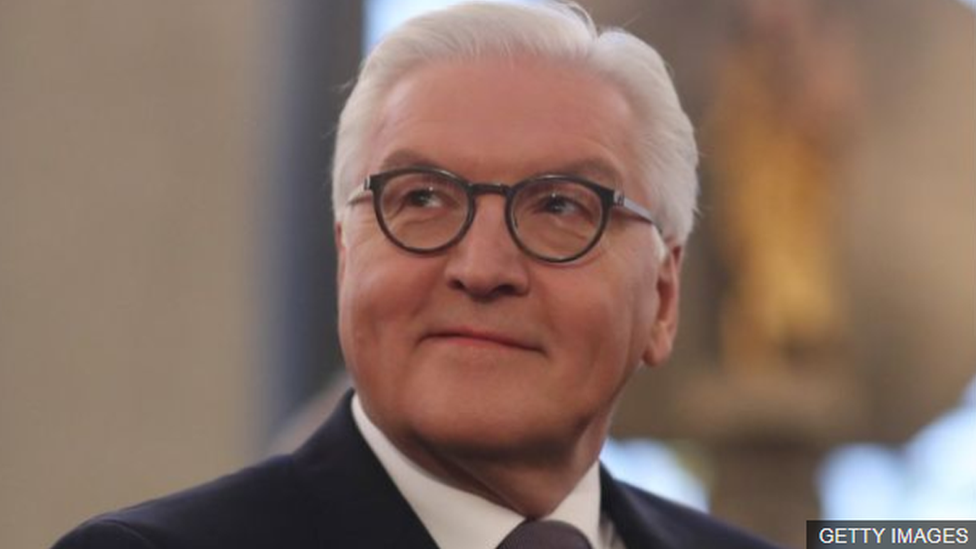Germany profile - Leaders
- Published
Chancellor: Angela Merkel

The Christian Democrat Angela Merkel, Germany's first female chancellor, has governed since 2005 in coalition with either the liberal Free Democrats or centre-left Social Democrats, but suffered a setback at the 2017 elections as the populist anti-immigrant Alliance for Germany (AfD) surged into third place.
The AfD exploited social tensions over the arrival of more than a million people from the Middle East, West Asia and Africa after Mrs Merkel offered asylum to refugees fleeing turmoil in Syria in the autumn of 2015.
With the heavily-wounded Social Democrats going into opposition, the chancellor faces the tricky task of assembling a coalition with the Free Democrats and anti-capitalist Greens.
Angela Merkel became leader of the Christian Democratic Union in 2000 after a party funding scandal that tainted her long-time mentor, former Chancellor Helmut Kohl.
She was born in Hamburg in 1954 but grew up in communist East Germany, where her father was a Protestant clergyman.
The 2008 global economic crisis left Mrs Merkel having to tread a fine line between helping debt-laden eurozone countries in a bid to preserve the common currency, and provoking a potential popular backlash at home against Germany - as the eurozone's richest country - over having to make huge contributions to bailouts.
President: Frank-Walter Steinmeier

Former foreign minister Frank-Walter Steinmeier was elected federal president in February 2017, succeeding Joachim Gauck.
A Social Democrat, Mr Steinmeier enjoyed the support of Chancellor Angela Merkel's "grand coalition" of centre-right and centre-left parties.
In his acceptance speech, he pledged to stand up to the rising trend of xenophobic populism, and promote inter-communal dialogue and democracy.
This became all the more topical in September, when the anti-migrant Alternative for Germany broke through to become the first hard-right party to win seats in parliament since the Second World War.